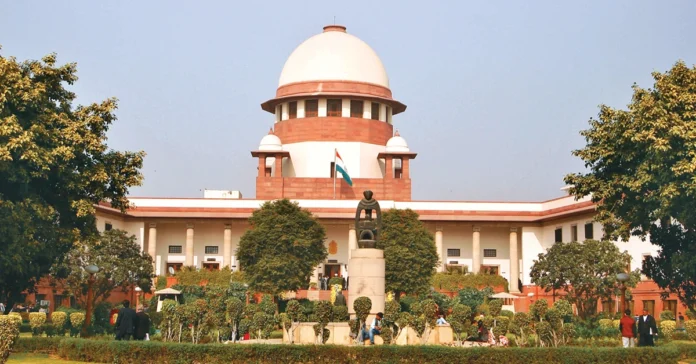The Supreme Court on Friday refused to entertain a Public Interest Litigation (PIL) challenging the constitutional validity of the Tax Deducted at Source (TDS) system under Article 32 of the Constitution.
Calling it a very badly drafted petition, the Bench of Chief Justice of India (CJI) Sanjiv Khanna and Justice Sanjay Kumar remarked that if the petitioner wanted to make a point, he should go to the High Court.
Noting that the petitioner may have had valid points, the Bench said the drafting of the petition failed to present a cogent case. It further said that the petition only touched upon peripheral issues without addressing the main points.
Appearing in person, Advocate Ashwini Upadhyay contended that the TDS system violated Articles 14, 19, 21, and 23(1) of the Constitution, as well as the principles of natural justice.
While rejecting the plea, the Bench, however, granted the petitioner liberty to approach the appropriate High Court, clarifying that it did not express any opinion on the merits of the case.
The petition contended that the TDS system imposed an undue burden on assessees, compelling them to act as tax collectors for the government without remuneration or adequate training.
It further submitted that the TDS mechanism violated Articles 14, 19, 21, and 23 of the Constitution by treating TDS assessees unfairly, forcing them to bear the ancillary costs of tax collection, and subjecting them to heavy penalties for errors.
Terming the TDS mechanism as forced labour, the plea said the assessees were required to perform sovereign functions of tax collection without compensation and under the threat of prosecution for lapses.
It claimed that TDS assessees were untrained and heavily penalised for mistakes, unlike Assessment Officers (AOs), who received extensive training and faced limited accountability for errors.
Upadhyay further highlighted in the petition, disparities in the treatment of AOs and TDS assessees, including the absence of privileges like error rectification and recovery mechanisms for TDS assessees.
He said the TDS compliance required significant technical expertise and resources, imposing financial and administrative burdens on individuals and businesses.
The petitioner referred to certain international precedents, stating that these governments recognised the burden on tax collectors and provide relief, a practice allegedly missing in India.


